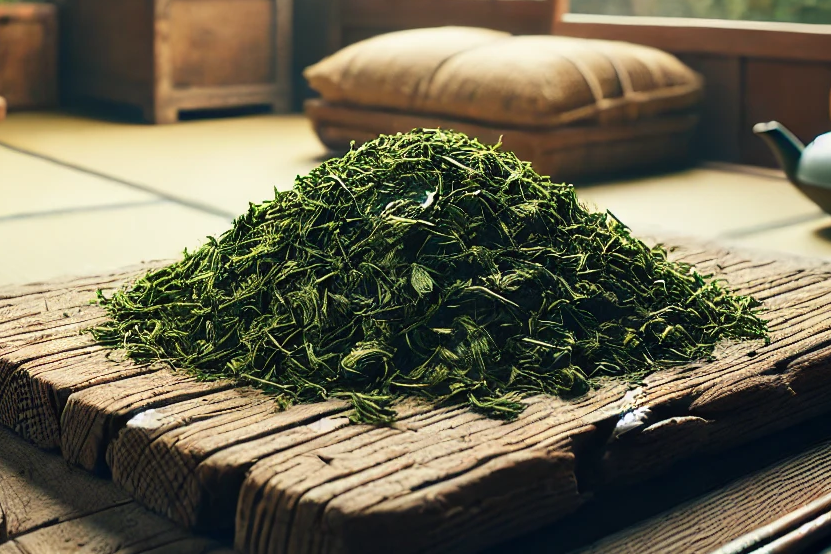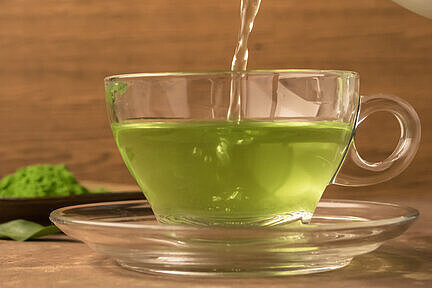Matcha

What is matcha?
Matcha comes from the same plant as conventional green tea, Camellia sinensis. The difference lies in the cultivation method: The tea bushes are shaded before harvesting to increase the chlorophyll content and the production of other chemicals such as L-theanine and caffeine. After harvesting, the leaves are steamed, dried and ground into a fine powder. This powder is then whisked into water and drunk, meaning that when you consume matcha, you are ingesting the whole leaf.
Green magic: Possible benefits of matcha for dogs
Antioxidant properties
- Cell protection: Matcha is rich in antioxidants, especially epigallocatechin gallate (EGCG), which can protect cells from free radical damage.
Calming effect
- Stress reduction: Due to the ingredient L-theanine, matcha could have a calming effect on dogs, which can be beneficial for anxious or hyperactive dogs.
Caution advised: Disadvantages and risks of matcha for dogs
Despite the potential benefits, there are significant risks associated with feeding matcha to dogs.
Caffeine content
- Toxicity: Matcha contains caffeine, which is toxic to dogs and can cause symptoms such as vomiting, diarrhea, hyperactivity, tremors, seizures and, in the worst cases, even death.
Gastrointestinal problems
- Indigestion: The introduction of matcha can cause gastrointestinal distress in some dogs, including diarrhea and vomiting.
Interaction with medications
- Druginteractions: Certain ingredients in matcha could interact with medications prescribed for your dog and interfere with their effectiveness.
Careful handling is crucial
Although matcha offers numerous health benefits for humans, its safety and efficacy for dogs is not well established. The potential risks, particularly toxicity from caffeine, make matcha an ingredient that should be treated with extreme caution when it comes to your dog's diet. Your dog's health and well-being should always come first. Ultimately, there are numerous safe and healthy alternatives to matcha that can be offered to your dog without risk.
If you notice any signs of hypersensitivity or poisoning in your dog, you should see your vet immediately. We are not a substitute for a vet, but we try to be as accurate as possible. Every dog reacts differently and we recommend you get a second opinion or consult your vet if in doubt.
Stay healthy and take good care of your four-legged friend!😊
Similar to Matcha
Sencha is one of the best known and most widely used types of green tea, especially in Japan. The leaves for Sencha are steamed after harvesting to stop fermentation and then molded and dried. This...
Dried green tea comes from the leaves of the Camellia sinensis plant, which are minimally oxidized. Unlike black tea, green tea undergoes a process that stops oxidation, preserving many of the...
Green tea is an infusion made from the leaves of the Camellia sinensis plant. In contrast to black tea or oolong tea, green tea is not fermented, but only steamed or roasted. This preserves more...
Green tea extract has a number of positive effects on the dog's organism. On the one hand, it can strengthen the immune system and protect against infections. On the other hand, it can slow down...



